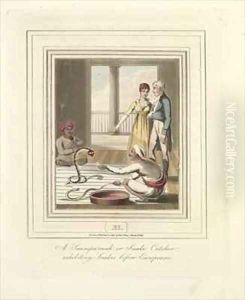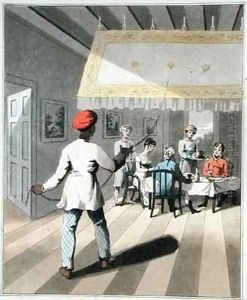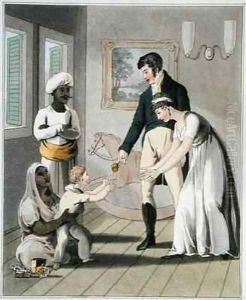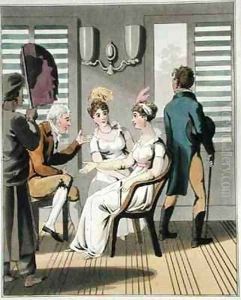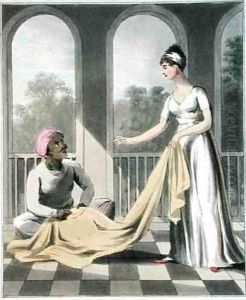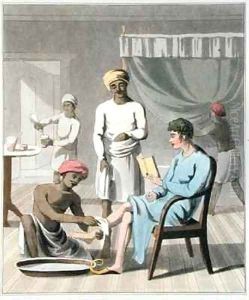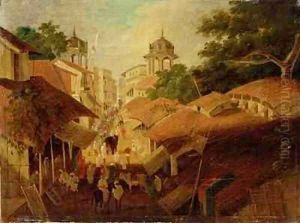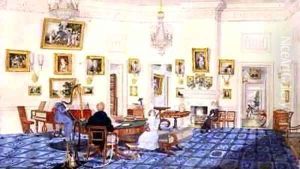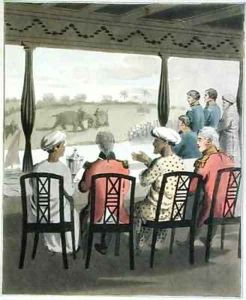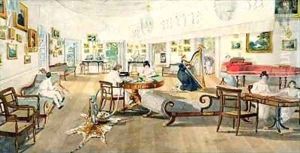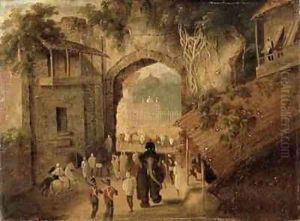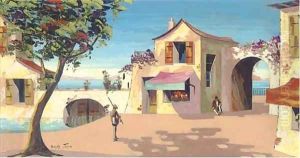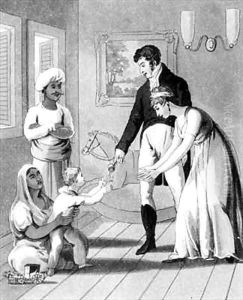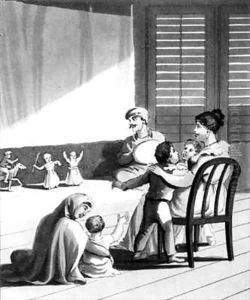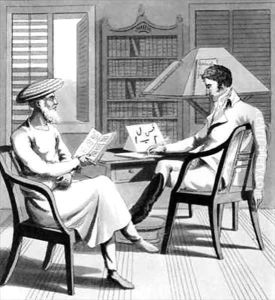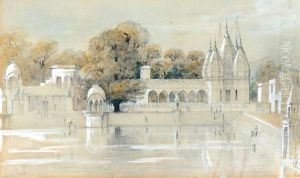Charles D'Oyly Paintings
Sir Charles D'Oyly, 7th Baronet, was a British public official and artist born on September 17, 1781, in Murshidabad, India. He was a notable figure in the British East India Company, serving in various administrative capacities throughout his career. D'Oyly's work is particularly significant for its depiction of Indian life and landscapes during the early 19th century, offering a unique perspective on the colonial experience from a European viewpoint.
D'Oyly's artistic journey began under the tutelage of George Chinnery, a renowned British artist who influenced him greatly. This mentorship helped D'Oyly develop a distinctive style that blended European artistic techniques with the vibrant culture and landscapes of India. Throughout his career, D'Oyly produced a vast array of sketches, watercolors, and lithographs that captured the essence of Indian society, architecture, and natural beauty. His works are characterized by their attention to detail and the ability to convey the atmospheric qualities of the Indian environment.
In addition to his artistic pursuits, Charles D'Oyly held several important positions within the British East India Company, including roles in the revenue and judicial departments. His administrative duties often took him across various parts of India, providing him with ample opportunities to sketch and paint the diverse landscapes and peoples he encountered. These experiences enriched his art, making it a valuable documentary resource on the cultural and historical aspects of British India.
D'Oyly was also instrumental in fostering the arts in India. He established the Behar School of Art in Patna, encouraging local artists and promoting the fusion of British and Indian artistic traditions. His efforts greatly influenced the development of modern Indian art and helped bridge cultural gaps between the British and Indians during the colonial period.
Charles D'Oyly passed away on September 21, 1845, in Calcutta (now Kolkata), India. His legacy lives on through his extensive body of work, which continues to be celebrated for its artistic merit and historical significance. D'Oyly's contributions to Indian art and culture are recognized as an important part of the colonial narrative, offering insight into the complexities and nuances of this period.
